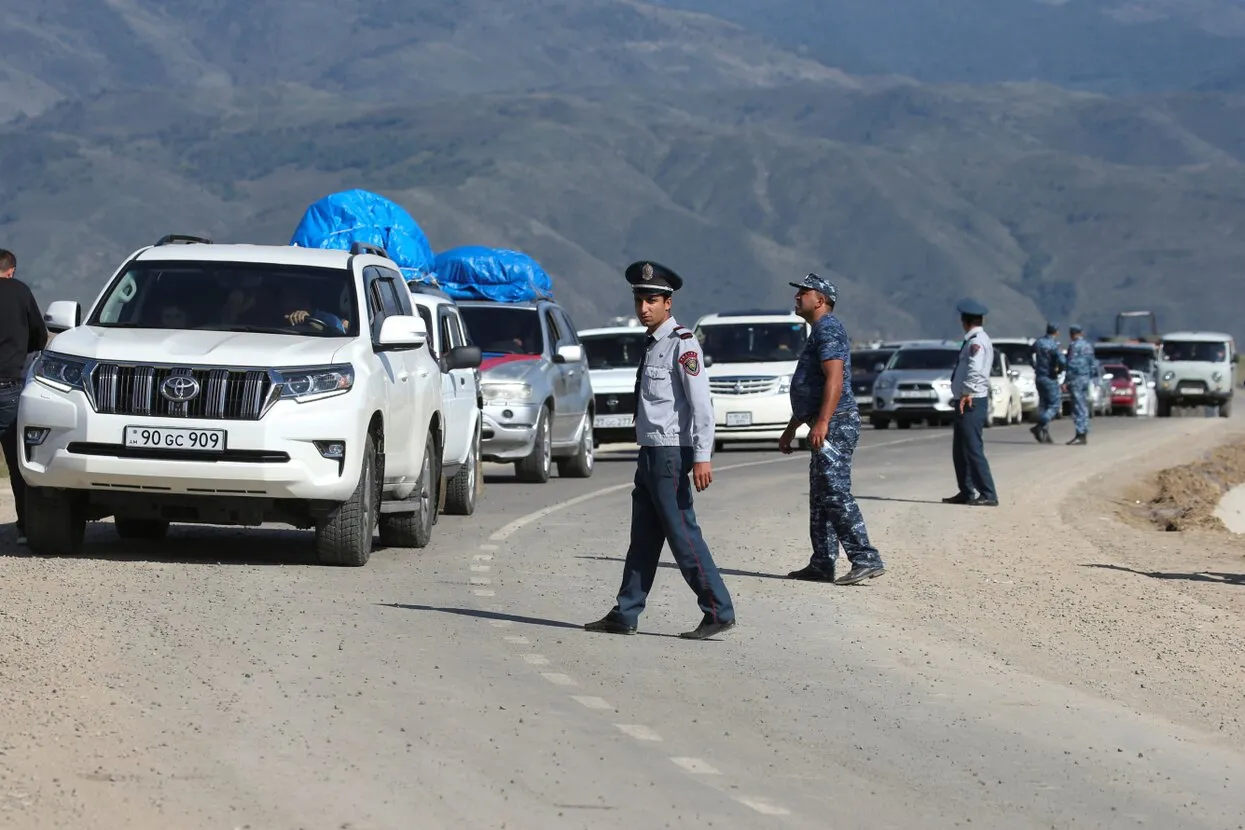
The end of Artsakh The republic proclaimed by ethnic Armenians in Nagorno-Karabakh will officially dissolve, and its former state minister is in Azerbaijani custody
The self-proclaimed Republic of Artsakh, established by the residents of Nagorno-Karabakh, will be dissolved. Artsakh President Samvel Shahramanyan has signed an order to dissolve the unrecognized state and all of its governmental institutions by January 1, 2024. The republic has existed since 1991 and was never internationally recognized — not even by Armenia, its primary source of military and economic support for the past two decades.
Why isn’t Artsakh on the world map?
An Azerbaijani court in Baku has remanded the former state minister of Artsakh, Ruben Vardanyan, in custody. On September 27, Vardanyan’s spouse Veronika Zonabend alerted the media about his arrest in the Lachin Corridor while trying to cross over to Armenia. After being detained by Azerbaijani border guards, the handcuffed politician and billionaire entrepreneur was delivered to Baku. Azerbaijan’s authorities are charging him with financing terrorism and organizing an illegal military formation and illicit border crossing. According to the investigators, Vardanyan financed and coordinated the activities of armed groups whose raids led to the death of people and other major consequences. If Vardanayan were convicted, these charges would amount to no less than 12 years in prison.
The arrest of Ruben Vardanyan
David Babayan, an advisor to the president of Artsakh, has voluntarily surrendered to the Azerbaijani authorities. In a Facebook post, he explained that Azerbaijan had blacklisted him and demanded that he come to Baku of his own volition to be investigated. “My non-compliance or, worse, an attempt to flee would bring most serious harm to our long-suffering people — to many people — and as an honest person, worker, patriot, and Christian, I cannot allow that,” he wrote.
More than half of all ethnic Armenians who lived in Karabakh have left the region. Nazeli Baghdasaryan, press secretary to the Armenian prime minister, stated that 68,386 refugees have entered the country since a humanitarian corridor opened. Prior to this exodus, Karabakh’s total Armenian population numbered 120,000. Yerevan has pledged to provide housing to people without a place to live. Prime Minister Nikol Pashinyan said he expects that no ethnic Armenians will be left in Nagorno-Karabakh within days, accusing Baku of ethnic cleansing. In response, Azerbaijan’s Foreign Ministry said Baku had nothing to do with the Armenians’ decision to leave the region.
Baku’s strike on Nagorno-Karabakh
Moscow says it has its eyes on the situation. Kremlin spokesman Dmitry Peskov said there’s little use in looking for culprits since “there isn’t any immediate, direct cause” of the refugee crisis. According to Peskov, Russian peacekeeping forces are assisting ethnic Armenians in crossing the border.
The Kremlin’s take on the events
Russian peacekeepers have been deployed in the region since 2020, along the entire Azerbaijan–Armenia contact line and also along the Lachin Corridor, which connects Nagorno-Karabakh with Armenia. During their deployment, they’ve done nothing to impede Baku’s actions in the region. With the start of Azerbaijan’s military strike on Stepanakert on September 19, State Duma Deputy Andrey Kartapolov declared that Russian peacekeeping troops had no right to intervene or use their weapons unless their own lives were threatened.